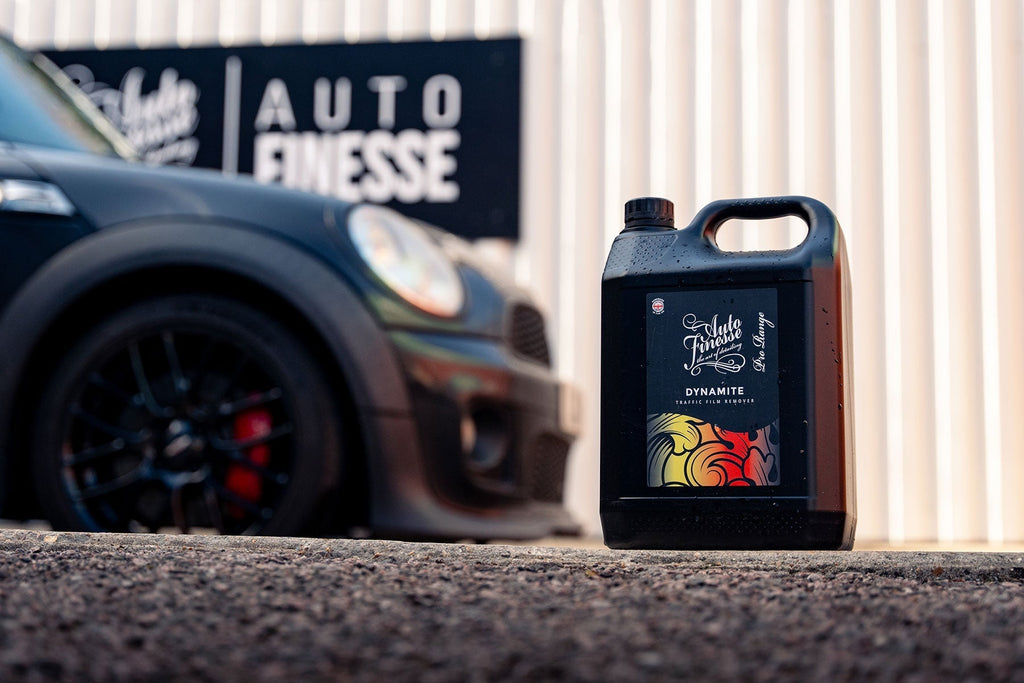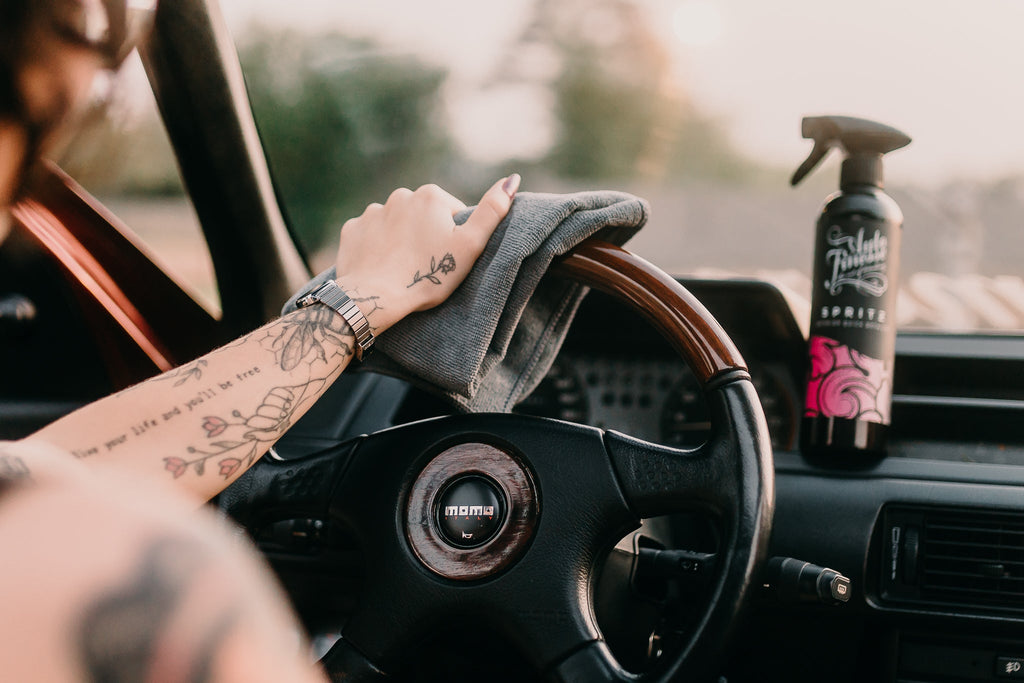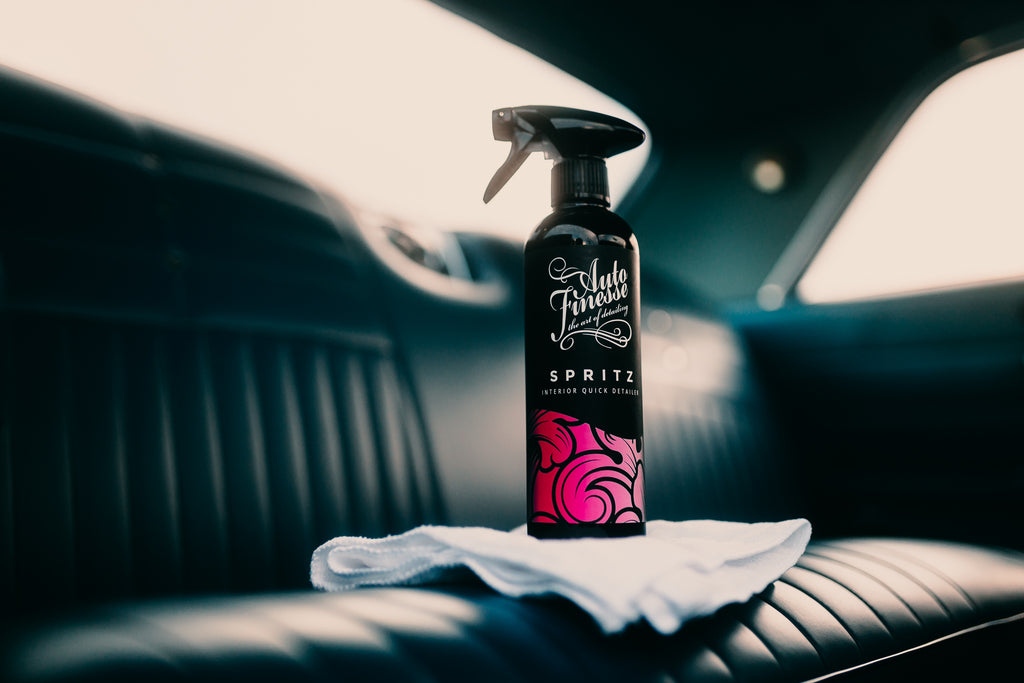What Is Car Detailing?
We get asked; "what is car detailing?' all the time, so we thought we'd answer like the good eggs we are. The term "detailing' was initially an American term that floated across here, probably in the early '90s. We all wash our cars, or have our cars washed. Whether it's because it's illegal to drive around in a car where your number plates are that filthy you're unable to read your registration number, or because you actually care about your car and your paint.
There are levels to cleaning a car, though. Tiers, if you will. So, when does cleaning your car become "detailing'?' The process of cleaning your car can be known as a simple wash, a valet, or a detail, but what's the difference?





The Car Wash
Your general, generic car wash will take up the form of a wash and vac, which will involve a shampoo wash (of the whole car including wheels and tyres), a dry off using a towel to stop any water spots or streaks, and sometimes a spray wax. That's pretty much as far as it goes, unless you go to a fancy car wash place and they offer you air fresheners that, more often than not, smell like cheap lemony household cleaning products.


Valeting
Car valeting is a step up. It's basically any extra offering you see at a car wash. There will be different cost levels from wash, dry and wax - much like the above, but with a little more attention to detail… and we mean "a little'. Door shuts will also be included, if you're lucky. There may even be vac and dash polish in the mix, which will cost you a little bit more, but you'll get a full hoover and a wipe down of all surfaces including leather seats. If any of you have ever had this done, you'll know the quality of products used; they can often be slippery and greasy - not what you want on your leather seats or steering wheel. If you opt for a top of the range valet, you'll often receive a polish to the paintwork, as well a clean to the windows (inside and out). These options can range from anything up to around £75.
Detailing
So, where does it all overlap into car detailing? Like the sort of detailing we do here at Auto Finesse? Well, car detailing is when it goes far deeper than what's on top of the paint.

Following a snow foam, like Avalanche (to remove any loose contaminants), and a good thorough wash (using the two-bucket method and a good quality car shampoo like Lather Car Shampoo), full paint decontamination can begin. We use a 3-stage method involving using Iron Out Contaminant &Fallout Remover to dissolve ingrained metal particles, followed by ObliTARate Tar and Glue Remover to eradicate any sticky residues.
Finally a detailing clay bar, or Clay Pad, with a suitable lubricant (we use Glide Clay Lubricant) will be used to remove embedded contaminants in the paint, such as tar, tree sap or anything that's buried deep enough not to have already been picked up. We advise before any clay barring, to feel the surface of your paint - if it's rough to the touch then (even if you can't see any problems) you have embedded dirt that should be removed.




When cleaning wheels, detailers will often take it one step further and remove the wheels from the car enabling them to get to the back to clean hard-to-reach areas. They will also cleaning up the brakes and inner components such as inner arch linings.
Even with the wheels on the car, at the very least they will clean and decontaminate wheels using specialist products like Iron Out Contaminant & Fallout Remover, Imperial Wheel Cleaner and Revolution Wheel Shampoo. A true detailer will always brush-in the correct product for the specific type of wheel to remove grime and corrosive brake dust in every recess.


Much like a valet, there are different tiers to car detailing. Depending on the level of detail you require, you may even decide to go down the machine polishing route to further correct and perfect the paint finish. This may involve polishing by hand, but most often will involve the use of a machine polisher (usually, a fixed rotary polisher will be used, but a dual action can be a bit gentler on thinner paint).
This system helps to remove any imperfections while polishing the paint's surface, leaving a swirl-free finish. Machine polishing removes fine lines in paint, swirl marks and even orange peel, making the car look even better than when it left the factory.



Once all this is complete, a detailer will finish all paintwork with the application of a good car wax or ceramic coating. This is not only to protect the work conducted, but also increase the longevity of the finish they've just spent so long on achieving.




On the inside, detailers will vacuum all areas, as well as employ the use of a carpet shampoo to remove any stains. Other surfaces such as upholstery, trims and headlining, will also be wet cleaned. They will often use special detailing brushes, much like our hog hair bushes or compressed air, to clean any vents or dials found in the car. Windows and seals will also be attended to. Seats, whether leather or cloth, will be worked on with very specific products to the material. If leather, detailers often finish with a leather protector.






Depending on the level of detail required, engine bays may also be worked on. Making the perfect finishing touch. Using Eradicate Engine Degreaser and finishing with Dressle Trim Dressing can make any engine bay show worthy in a matter of minutes!





Of course, there's also a whole finishing process involved, a true detailer will use the correct product to finish and protect every surface, whether that's restoring plastics with Revive Trim Dressing, Using Tripple 3-in-one all purpose Car Polish to clean and protect door jambs, dressing tyres with Satin Tyre Creme, or simply making sure your windows are sparkling using Crystal or Caramics Glass Cleaner. A real detailer deals with just that - the details.





In short, detailing is about getting the absolute best look for your paintwork and other surfaces. A clean or a valet is about making sure all surfaces are, well, clean - they don't really take into account embedded dirt or swirl mark issues, or the fading of paint. Car detailing delves much deeper than that, enabling you to get re-spray like finishes, without actually having to fork out for a full paint job. In our opinion, it's the attention to detail that defines you as a "detailer', fully covering every "detail' of a car. A true detail can cost anything up to £2000.










